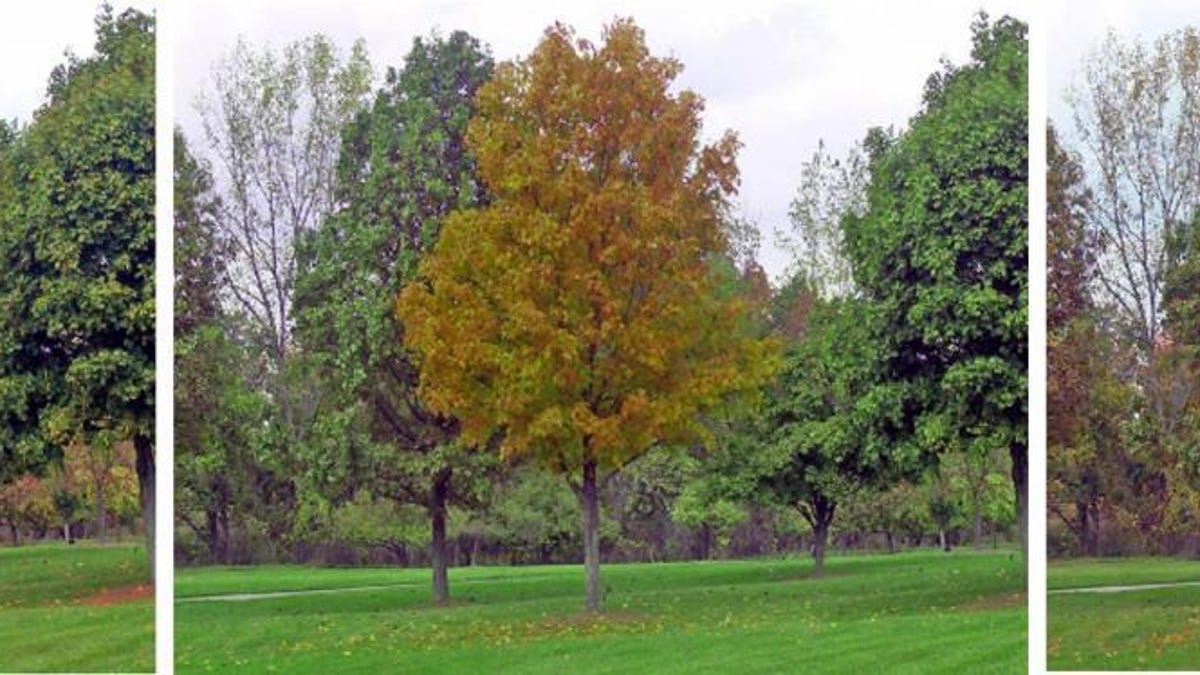These high-tech contacts may help correct color blindness
They could help people with a form of red-green color blindness restore lost color contrast, researchers say.

An illustration of the effect the metasurface-based contact lens would have on a person with red-green color blindness: The left image is the original scene, the middle image is how it would look to a person with deuteranomaly and the right represents how it would look to that person with the corrective lens.
New contact lenses could help people with color blindness restore lost color contrast and improve color perception up to a factor of 10, according to research from Tel Aviv University in Israel. The research, published in The Optical Society journal Optics Letters, involved incorporating super-thin optical devices called metasurfaces into average contact lenses to correct deuteranomaly, a form of red-green color blindness.
The customizable contacts could be a convenient and comfortable solution for those with color blindness, the researchers said in a Wednesday press release. The method used could eventually be expanded to help other forms of color blindness as well as other eye disorders, they added.
"Glasses based on this correction concept are commercially available, however, they are significantly bulkier than contact lenses," Sharon Karepov, a member of the research team, said in the release. "Because the proposed optical element is ultrathin and can be embedded into any rigid contact lens, both deuteranomaly and other vision disorders such as refractive errors can be treated within a single contact lens."
The contacts will need to undergo clinical testing before they hit the market, the researchers said.

